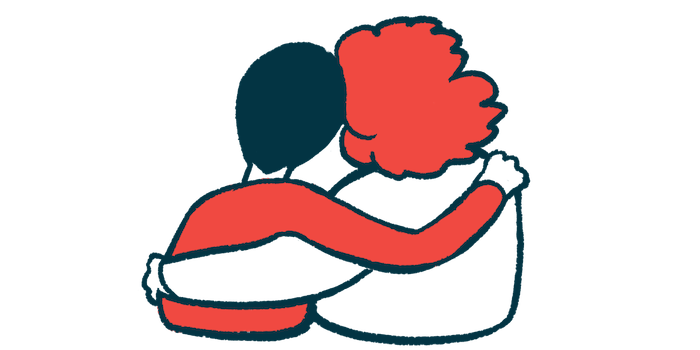Home Health Visits Plus Peer Mentors May Ease Caregiver Strain
Study into way of support for caregivers of people with advanced Parkinson's
Written by |

Pairing at-home healthcare visits with peer mentoring may help to prevent the strain of caregiving from worsening over time among people caring for homebound loved ones with advanced Parkinson’s disease, a study reported.
“As the volume of family caregivers exponentially increases, peer mentoring — already a successful model in other serious illnesses — may offer an adjunctive pipeline of support by leveraging the lived knowledge of experienced caregivers to benefit those who follow,” the researchers wrote.
The study, “IN-HOME-PD caregivers: The effects of a combined home visit and peer mentoring intervention for caregivers of homebound individuals with advanced Parkinson’s disease,” was published in Parkinsonism & Related Disorders.
Sharing the ‘lived knowledge’ of experienced Parkinson’s caregivers
Day-to-day tasks are challenging for people with advanced Parkinson’s, and they need to rely on informal caregivers, often a spouse or family member.
These people, in turn, “report anxiety, depression, pain, and higher caregiver burden, though little longitudinal data exists on late-stage PD [Parkinson’s disease] caregivers,” the researchers wrote.
Notably, caregiver strain has been shown to correlate with worse health outcomes for patients, so that an ongoing need exists for more effective ways to support caregivers.
Rush University Medical Center in Illinois sponsored a clinical trial (NCT03189459) of a novel support intervention that paired healthcare home visits with caregiver peer mentoring for 65 pairs of homebound Parkinson’s patients (all with a Hoehn and Yahr scale score of 3 or higher) and their family caregivers.
“Effective interventions to help family caregivers are critically needed, particularly when paid caregiving is unattainable for most people,” the researchers wrote.
Over the course of a year, patient-caregiver pairs received four at-home visits from a nurse and social worker, with a movement disorder specialist available via telehealth (phone or video calls).
Each caregiver was also matched with one of 34 peer mentors, experienced current or former carers for someone with Parkinson’s who were trained by the researchers to be mentors.
Several months after the study’s start, mentors and caregivers began weekly 30-minute meetings, conducted by phone, videoconference, or in person for about four months.
A total of 51 caregivers completed the one-year, at-home healthcare visits, and 45 finished the four-month mentoring period. Most caregivers who withdrew from the study early did so because the person they were caring for had died.
Support of mentoring program may prevent greater caregiver strain
A main study goal was to assess whether the intervention eased caregiver strain, as measured by the Multidimensional Caregiver Strain Index (MCSI).
While this trial did not include a placebo or sham group, researchers compared participants’ outcomes with those from caregivers in the Parkinson’s Outcomes Project (POP) registry, an older study in which Parkinson’s patients and caregivers completed brief annual assessments.
Overall, MCSI scores were generally worse among caregivers in this trial than in the POP registry, both at study’s start and after one year.
This was likely related to patients in the POP registry generally having less advanced Parkinson’s and registry caregivers being “healthier, younger, more mobile, and less cognitively impaired,” the researchers wrote.
Over the course of one year, MCSI scores among caregivers undergoing the intervention did not change significantly. By contrast, MCSI scores for caregivers in the POP registry worsened significantly after one year.
“Caregiver strain stabilized in the intervention group and worsened among a control group of caregivers despite the control [people with Parkinson’s] having less severe disease,” the researchers wrote.
Although no clear easing of strain was seen in caregivers, “the interventions — individually or in combination — may have mitigated the course otherwise observed with usual care,” they added.
Notably, satisfaction with the caregiver peer mentoring was high, and 100% of the mentors and mentees reported that their meetings were useful and that they got along at each meeting.
“The acceptability and feasibility of both interventions were high among caregivers and peer mentors,” the researchers wrote.
At-home healthcare visits and interim calls “may have conferred knowledge and mastery, and peer mentoring offered structured, knowledgeable social support, that mitigated caregiver strain,” the team wrote.
Further studies are needed to evaluate “the direct effect of peer mentoring on key mediators of caregiver strain — namely, knowledge, mastery, skills, and perceived social support — to determine whether these domains are effected in the short-term and if so, whether and over what time course these changes impact strain,” they added.
The scientists stressed that the comparison against historical control data, with patients and caregivers in different situations than those involved in the trial, is an important study limitation.



